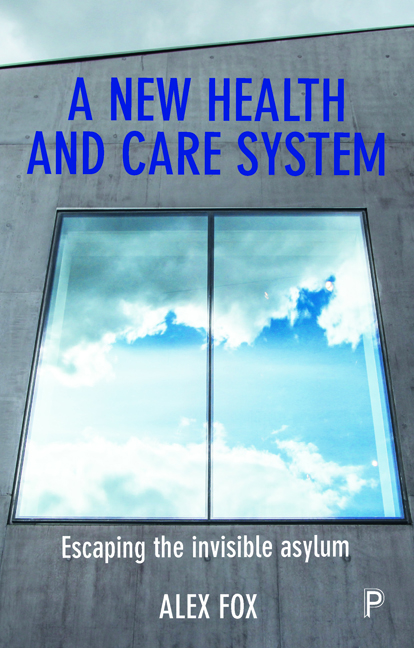Book contents
- Frontmatter
- Dedication
- Contents
- Acknowledgements
- Prologue
- Introduction
- one How we divide the world into community and asylum
- two How we create problems by trying to fix them
- three Why failure pays, but success costs
- four Risk aversion and risk indifference
- five The humanisation experiment
- six Shared Lives
- seven Designing a new national health and wellbeing service
- eight Delivering the national health and wellbeing service
- Can we escape?
- Notes
- References
- Index
four - Risk aversion and risk indifference
Published online by Cambridge University Press: 08 April 2022
- Frontmatter
- Dedication
- Contents
- Acknowledgements
- Prologue
- Introduction
- one How we divide the world into community and asylum
- two How we create problems by trying to fix them
- three Why failure pays, but success costs
- four Risk aversion and risk indifference
- five The humanisation experiment
- six Shared Lives
- seven Designing a new national health and wellbeing service
- eight Delivering the national health and wellbeing service
- Can we escape?
- Notes
- References
- Index
Summary
Heavy Load was a punk band with five disabled and non-disabled members. As the film about the band showed (Rothwell, 2008) punks with learning disabilities may not even be able to live how and where they want, let alone throw TVs out of hotel-room windows. In one scene, one of the men is comprehensively overruled in his desire to move to a city where he hopes to live a slightly more rock and roll lifestyle, but where the professionals who have the final say on his decisions feel he may be unsupported or isolated. From the band and its punk ethos was born a charity called Stay Up Late, dedicated to helping people with learning disabilities ‘fight for your right to party’. You may from time to time see an adult with a learning disability at a festival or a night out, but this will rarely be past about 7.30 pm. This isn't because they have to get to bed early, it is because support service shifts generally change over in the evening. The support worker has to get back in time for ‘handover’ to the night shift, so the person they support has to go home long before most nights out have even got going. Late nights out at rowdy venues serving alcohol can also be seen as risky, although the person being supported might be more concerned with the risk of missing out on fun and friends. Stay Up Late's neat solution to this is Gig Buddies, a scheme in which disabled and non-disabled people are matched around shared taste in music and go to gigs together. It is not a service: it is people coming together over a shared taste in music. While many support services have strap lines involving words like ‘quality’ and ‘independence’, Stay Up Late's motto is the best company motto ever: ‘Keep It Punk’.
Earlier, I suggested that one of the signs that you are living in an invisible asylum is that you are in a place of ‘safety’, as defined by others who have a professional (but not necessarily personal) responsibility for keeping you ‘safe’.
- Type
- Chapter
- Information
- A New Health and Care SystemEscaping the Invisible Asylum, pp. 69 - 86Publisher: Bristol University PressPrint publication year: 2018



